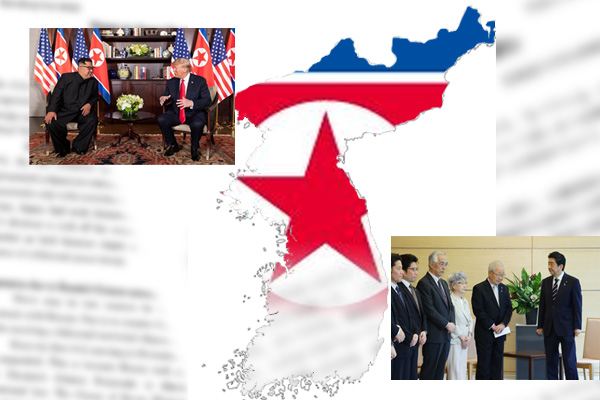“Abduction victims and we the families have got older, but we remain determined to achieve a family reunion. We have persistently hoped to have our children returned soon. It is very deplorable that the abduction issue has remained unresolved for as long as 42 years. We the families have got aged. How long will we have to wait until their return? We are impatient,” said Sakie Yokota just before the 42nd anniversary of her daughter Megumi’s abduction by North Korea on November 15, 1977.
Framework prepared for rescuing abductees
As I have been with the parents of Megumi and families of other abductees for more than 22 years for the purpose of rescuing victims since the families formed an association in 1997, I am really sorry and sad to see no visible progress in resolving the abduction issue. This year, however, I have repeatedly told the association members: “An international framework has been prepared for rescuing the abductees. We must not change the present attitude of refraining from easing sanctions on or providing assistance to North Korea in pursuit of deceptive progress until all the abduction victims return home immediately and collectively.”
Negotiations backed by strong pressures are the only way to move North Korea. The pressures include economic sanctions and military pressures. These pressures rose to the near maximum levels in 2017, resulting in U.S.-North Korea talks that started in 2018.
Then, the government of Prime Minister Shinzo Abe and our rescue movement frantically worked on the U.S. Trump administration to include the abduction issue on the agenda of the denuclearization talks with Pyongyang. At meetings with North Korean Chairman Kim Jong Un in Singapore and Hanoi, President Trump urged the North Korean leader three times to resolve the abduction issue. Trump understood the seriousness of the issue through his two meetings with families of abduction victims and raised the issue at talks with Kim in a bid to offer Japan’s economic assistance to North Korea in exchange for the dismantlement of nuclear missiles.
Swirling North Korean disinformation campaigns
The framework has been prepared. However, the U.S.-North Korea denuclearization talks have failed to make substantial progress over the past year and a half, leading to the present deplorable situation where the abduction issue between Japan and North Korea has remained stalled. The framework has been set for the goal. Two conditions must be met for achieving the goal. One condition is Chairman Kim’s decision to dismantle nuclear missiles, which would bring about big progress in U.S.-North Korea talks. Without such decision, Japan-North Korea talks would not reach a full-blown stage.
The second condition is Chairman Kim’s reversal of then General Secretary Kim Jong Il’s explanation in 2002 that North Korea had abducted only 13 Japanese citizens including eight who had died. Since around the U.S.-North Korea summit in Singapore in June 2018, North Korean spy agencies have busily conducted disinformation campaigns targeting Japanese politicians, journalists and scholars. Pyongyang has prepared a deceptive ploy offering that a re-investigation has found new abductees other than the eight who have been declared dead and that if the conclusion that the eight including Megumi are dead is doubtful, it could be examined at a Japan-North Korea joint investigation panel. In apparent disinformation campaigns, North Korean sources have recently leaked information indicating the survival of Minoru Tanaka and Kyoko Matsumoto who are among the victims officially identified by the Japanese government as abductees in addition to the eight.
Therefore, I would like to loudly ask the Japanese government not to commit the folly of lowering pressures on Pyongyang in pursuit of deceptive progress.
Tsutomu Nishioka is a senior fellow and a Planning Committee member at the Japan Institute for National Fundamentals and a visiting professor at Reitaku University. He covers South and North Koreas.


